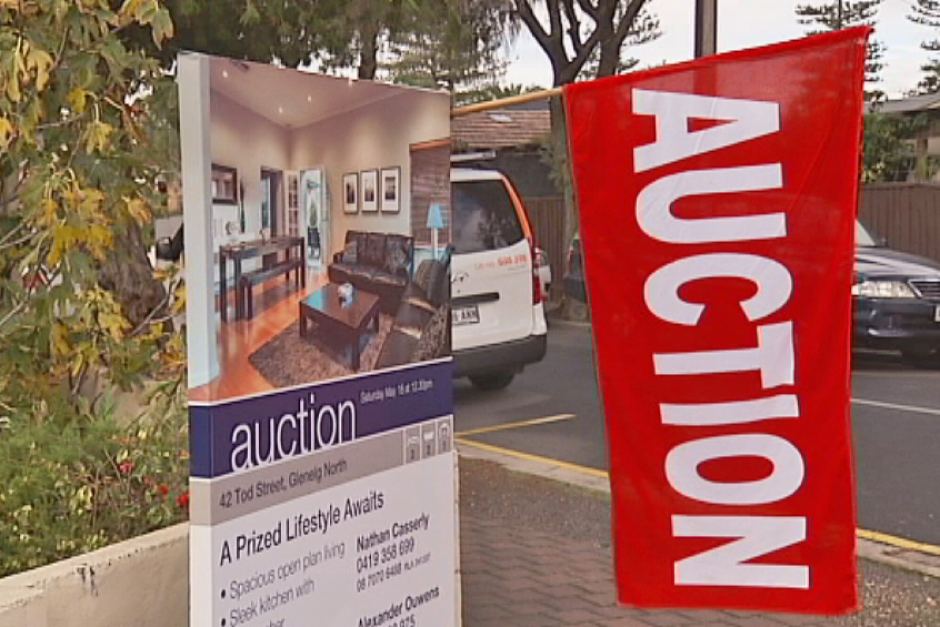Category: Housing Industry / Economic Trends / Building and Construction / Banking
25pc price drop needed to help first home buyers: Deutsche Bank
Tuesday, 27 Sep 2016 08:58:55 | Michael Janda

Deutsche Bank finds that deposits are now 25 per cent higher relative to incomes.
First home buyers are facing the biggest barrier in recent history to entering the housing market, with deposits at record high levels relative to incomes in the Sydney market.
Research by Deutsche Bank's chief Australian economist Adam Boyton shows it would take a 25 per cent drop in Sydney home prices to bring the size of deposit required back to average levels over the past 20 years.
Mr Boyton studied the Sydney market because it is the biggest, has seen rapid recent price growth and has the highest housing costs in the nation.
In contrast to the record deposit needed - now estimated to be almost twice the typical annual earnings of a Sydney household - rising incomes over the early 2000s and falling interest rates since the global financial crisis have seen the burden of mortgage repayments remain comparatively stable relative to income.
Mr Boyton expresses this as "borrowing power", which has broadly increased in line with Sydney home prices, albeit with prices jumping ahead somewhat during the most recent boom.
 Photo:
Increases in borrowing power have broadly tracked rising home prices. (Supplied: Deutsche Bank)
Photo:
Increases in borrowing power have broadly tracked rising home prices. (Supplied: Deutsche Bank)
At the low point in 2003, a Sydney household with a typical income could only borrow half what a typical house cost if their repayments were to be 30 per cent of their gross incomes.
At the best points for affordability, households could comfortably afford to borrow between 60-68 per cent of the typical Sydney house price.
Currently that figure is just over 50 per cent.
Growing deposit gap the biggest barrier for home buyers
It is the disjunction between this borrowing power, that remains relatively correlated with home price increases, and a growing "deposit gap" that Mr Boyton has argued raises generational equity issues.
"The more pressing affordability issue has less to do with mortgage repayments in our view, but more to do with the ability of those that have not enjoyed the most recent run-up in prices to enter the market," he wrote.
"That is, we are more looking at an issue of equity (between those that do versus those that do not own residential property, with there being a strong intergenerational element to this)."
 Photo:
The multiple of income needed for a typical Sydney house deposit is at record highs. (Supplied: Deutsche Bank)
Photo:
The multiple of income needed for a typical Sydney house deposit is at record highs. (Supplied: Deutsche Bank)
With the size of a standard 20 per cent housing deposit relative to income now well above the previous peak seen at the top of Sydney's last big boom in 2002-2003, Mr Boyton said it would take a 25 per cent decline in prices just to get back to the 20-year average.
"The experience of other economies that have seen such a drop in house prices over a two-year horizon would suggest such an outcome would be highly undesirable [given the likely] impacts on the banking sector and the broader macro-economy," he added.
Mr Boyton said the recent increase in apartment supply may put some downward pressure on prices and income growth could see deposits return to more manageable levels in around a decade's time.
He said that suggests some rental law reforms are in order to give long-term tenants greater protection.
"If we are looking at a decade or so to restore affordability for those not already in the housing market, policy changes to make renting a more desirable long-term proposition with greater stability for tenants might also be in order," he concluded.
- About Us
- |
- Terms of Use
- |
-
 RSS
RSS - |
- Privacy Policy
- |
- Contact Us
- |
- Shanghai Call Center: 962288
- |
- Tip-off hotline: 52920043
- 沪ICP证:沪ICP备05050403号-1
- |
- 互联网新闻信息服务许可证:31120180004
- |
- 网络视听许可证:0909346
- |
- 广播电视节目制作许可证:沪字第354号
- |
- 增值电信业务经营许可证:沪B2-20120012
Copyright © 1999- Shanghai Daily. All rights reserved.Preferably viewed with Internet Explorer 8 or newer browsers.




 Send to Kindle
Send to Kindle